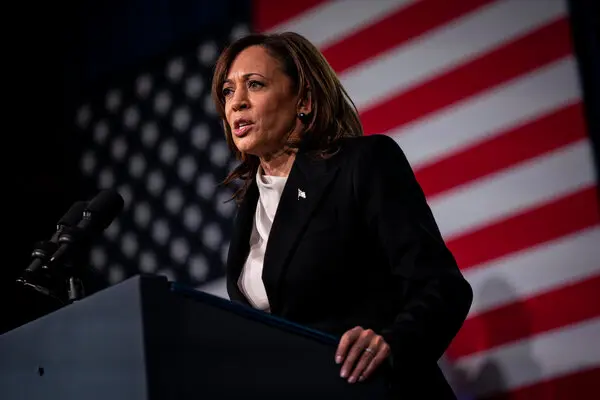As concerns over the age and mental capacity of President Joe Biden continue to percolate, Vice President Kamala Harris has stepped forward, asserting her readiness to serve as President if the need arises. This assertion comes amid growing discussions regarding President Biden’s handling of classified documents, as highlighted in a report by Special Counsel Robert Hur. Moreover, Republican presidential candidate Nikki Haley has intensified criticisms against both Biden and former President Donald Trump, questioning their fitness for office based on age and mental acuity.
Haley, the former Governor of South Carolina, has been particularly vocal in her attacks on Biden and Trump regarding their age and mental capacity. At a recent rally, she labeled Trump, aged 77, as mentally deficient, while branding Biden, aged 81, as too old to effectively lead the nation. This critique underscores the increasing scrutiny surrounding the presidential candidates’ abilities to fulfill their duties, especially as they advance in age.
A September survey conducted by Reuters/Ipsos revealed that a significant majority, comprising 77% of respondents, believed that Biden’s age made him unsuitable for governmental responsibilities. Similarly, 56% of participants expressed doubts about Trump’s capability to govern due to his age. These findings underscore the widespread concerns among the electorate regarding the advancing age of presidential candidates and its potential impact on their ability to lead effectively.
Haley has gone a step further by proposing mental capacity tests for presidential candidates above the age of 75. This suggestion reflects a growing sentiment within the Republican Party that age-related cognitive decline should be a significant consideration in assessing a candidate’s fitness for office. By advocating for such tests, Haley aims to ensure that only candidates with the requisite mental acuity are entrusted with the responsibilities of the presidency.
The concerns over Biden’s mental capacity were further highlighted in the report by Special Counsel Robert Hur, which questioned the President’s handling of classified documents. Hur described Biden as a “well-meaning, elderly man with a poor memory,” suggesting that his age and memory lapses could impact his ability to fulfill his duties effectively. The report also noted instances where Biden appeared to forget key details during conversations with investigators, including the death of his son Beau Biden.
President Biden has vehemently pushed back against these assertions, insisting that his memory remains intact. He expressed frustration with the report and rebuffed reporters’ inquiries, asserting that he is fully capable of executing his duties as President. Biden’s defense underscores the sensitivity surrounding discussions about age-related cognitive decline and the potential implications for his presidency.
Meanwhile, former President Donald Trump has seized on these concerns to criticize Biden and question his fitness for office. Trump, who is facing several federal cases, including allegations related to the handling of classified documents, has accused Biden of being unfit to serve as Commander-in-Chief. Trump’s criticisms underscore the partisan divide surrounding discussions about age and mental capacity in politics, with both parties using the issue to discredit their opponents.
As the debate over age and mental capacity in politics intensifies, Vice President Kamala Harris’s assertion of readiness to assume the presidency adds a new dimension to the conversation. While Kamala Harris’s statement is aimed at reassuring the public about the continuity of leadership, it also highlights the importance of succession planning in ensuring the stability of government.
The debate over age and mental capacity in politics has become increasingly prominent, with concerns over President Biden’s fitness for office at the forefront. Vice President Kamala Harris’s declaration of readiness to serve as President underscores the need for transparency and accountability in assessing the capabilities of elected officials. As the discussion continues, it remains essential to prioritize the nation’s best interests while evaluating the fitness of candidates for the highest office in the land.














